
Unexpected survivors: Tapping the past to inform the future of casualty care
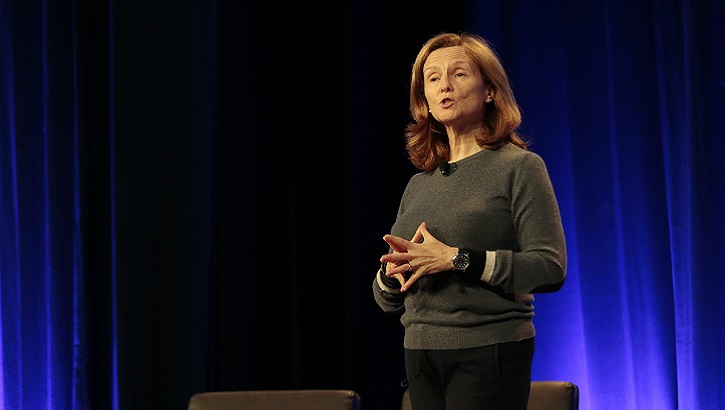
Dr. Emily Mayhew, author and historian, spoke on "Unexpected Survivors: The History and Future of Military Medicine" at 2019 MHSRS on Tuesday morning at the Gaylord Palms Resort and Convention Center. (MHS photo)
KISSIMMEE, Fla. — Dr. Emily Mayhew, military medical historian and author, spoke on Tuesday morning at the 2019 Military Health System Research Symposium at the Gaylord Palms Resort and Convention Center. Mayhew holds a dual appointment as imperial lead for the Paediatric Blast Injury Partnership and historian in residence in the department of bioengineering at the Imperial College of London. She has written three books on complex casualty in contemporary warfare and is working on her fourth titled, “War, Pestilence, Famine and Death: the Four Horsemen and Those Who Seek to Save Us.”
Introduced by Air Force Col. Todd Rasmussen, professor of surgery and associate dean for clinical research at Uniformed Services University of the Health Sciences, Mayhew took the stage and spoke eloquently about her specialization studying shared casualty care contexts and capabilities across a century of modern warfare. She used military medical care developments during World War I to illustrate how the concept of unexpected survivors evolved. Unexpected survivors are just that – warfighters who survive in spite of injuries sustained on the battlefield thanks to the remarkable advances in casualty care that began during World War I.
From her perspective as a historian, Mayhew stated, “I’d like to emphasize the need to develop human-based solutions alongside the technology of field care.” The most critical of these skills is situational awareness, according to Mayhew. “Complete situational awareness indicates the ability to manage complexity. It is a sense of where you are because having a sense of the battlefield is supremely important.”
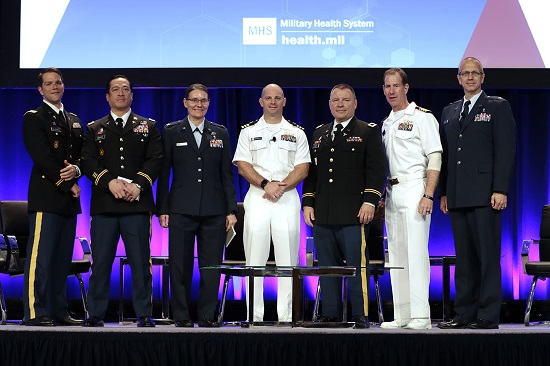
MHSRS plenary panelists after their session. Panel members from left are: moderator Air Force Lt. Col. Brian Beldowicz; Army Lt. Col. Phu “Chuck” Nguyen; Air Force Col. Stacy Shackelford; Navy Cdr. Matthew Bradley; Army Col. Andrew Cap; Navy Capt. Eric Elster; and Air Force Col. Todd Rasmussen. (MHS photo)
Mayhew also noted complementary skills to situational awareness: organizational ability to keep an aid post running smoothly and assessment capabilities to identify strategic areas for aid post stations. Mayhew noted that medics, called stretcher-bearers in World War I, were former miners who knew how to mitigate threats by digging trenches and identifying evacuation routes, thereby underscoring their important situational awareness skills.
She likened these situational awareness skills to someone who, as a child, was good at building forts. “If you could identify a safe area, an item that could be naturally converted into a shelter like a discarded box, and a way to sustain the fort from collapse, you’re an ideal candidate for today’s field medic,” she said.
Before taking a few questions from the audience, Mayhew asked the audience to remember the lessons of history when looking at future casualty care scenarios and to identify the team members needed to provide a full complement of care. “Capable combat casualty care is human decision-making in the toughest situations around the world.”
A panel discussion titled, “Creating Unexpected Survivors in a Real World Scenario: Decision Points in Contemporary Combat Casualty Care” followed Mayhew’s presentation. Air Force Lt. Col. Brian Beldowicz, surgeon at Madigan Army Medical Center, moderated the session.
Panelists included:
- Air Force Col. Todd Rasmussen, professor of surgery and associate dean for clinical research at Uniformed Services University of the Health Sciences;
- Army Col. Andrew Cap, chief of the acute combat casualty care division of the Institute of Surgical Research and hematology oncology consultant to the Army Surgeon General;
- Air Force Col. Stacy Shackelford, director of the joint trauma system at the Combat Support Agency, Defense Health Agency;
- Navy Capt. Eric Elster, professor and chairman in the department of surgery at Uniformed Services University of the Health Sciences and Walter Reed National Military Medical Center;
- Navy Cdr. Matthew Bradley, trauma critical care surgeon and incoming director of the general surgery residency program at Walter Reed National Military Medical Center; and
- Army Lt. Col. Phu “Chuck” Nguyen, emergency room physician at Walter Reed National Military Medical Center and medical advisor to joint special operations command.
Beldowicz presented a realistic plane crash scenario in a remote location with limited land or air transport support for medical care. He posed questions to the panelists on how they would use their expertise to respond the needs of the wounded.
A few important themes emerged from the panelists’ responses, all of which speak to the need for research and development that contributes to warfighter readiness and a medically ready force.
The first theme addressed advanced resuscitative care principles, using whole blood and controlling hemorrhage. For whole blood resuscitation, speed is important and the need for flexibility is paramount. Controlling hemorrhage is an ability and capability needed as far forward as possible, according to the panel experts.
A second theme that emerged was on the make-up and function of the casualty care team. A team has to work together and be flexible, regardless of the number of members. Individual proficiency, when a provider is current and competent in his or her skills, allows a team to function at its best. Knowledge base, skills and practice are the three key components to a successful team.
The panelists also focused on a third theme of provider training, much of it happening at medical treatment facilities. As part of training to achieve a ready medical force and a medically ready force, it is imperative to put providers in locations where they can get the right expertise and to train in teams when possible.
The panelists discussed how sub-specialty physicians such as vascular, plastic and orthopedic surgeons, for example, and intensivist critical care providers should be part of what the panelists referred to as “smart deployment” strategies. Their expertise should also be tapped to teach and train other providers in order to expand the ability to provide prolonged casualty care at the injury site when they are not immediately available.
Research around many of these themes will be discussed further at breakout and poster session presentations during the week’s Military Health System Research Symposium which continues at the Gaylord Palms Resort and Convention Center through Thursday, August 22nd.
Research for Readiness: Military Health System kicks off annual symposium
Article
8/20/2019
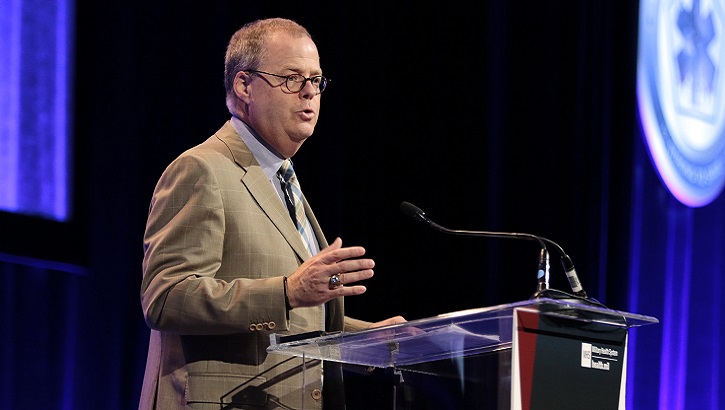
Research, development ensures service members are better prepared, better protected, better cared for
Individuals, teams honored at MHSRS for exemplary research
Article
8/20/2019
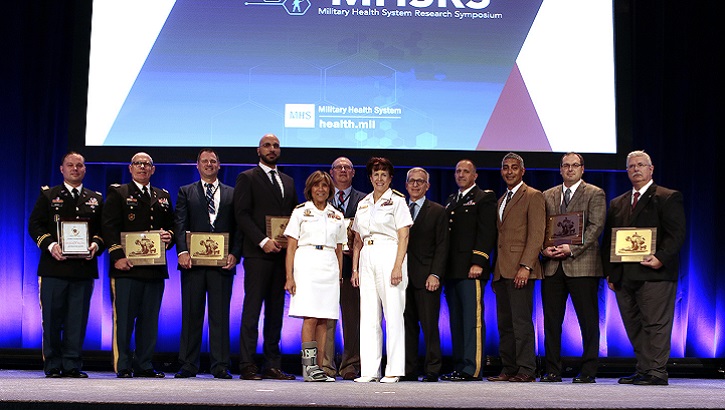
New nurse researcher award debuts this year
Call for abstracts open for 2019 Military Health System Research Symposium
Article
2/11/2019
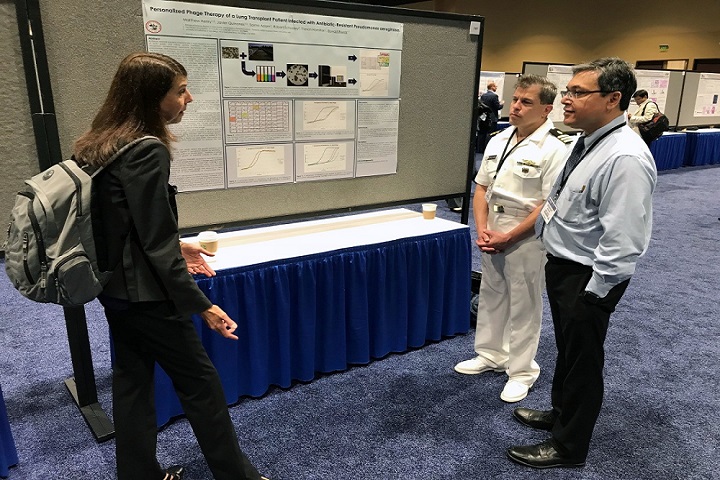
MHSRS is the DoD’s premier scientific meeting and addresses the unique medical needs of the Warfighter
MHSRS Young Investigator competition awards announced
Article
8/23/2018
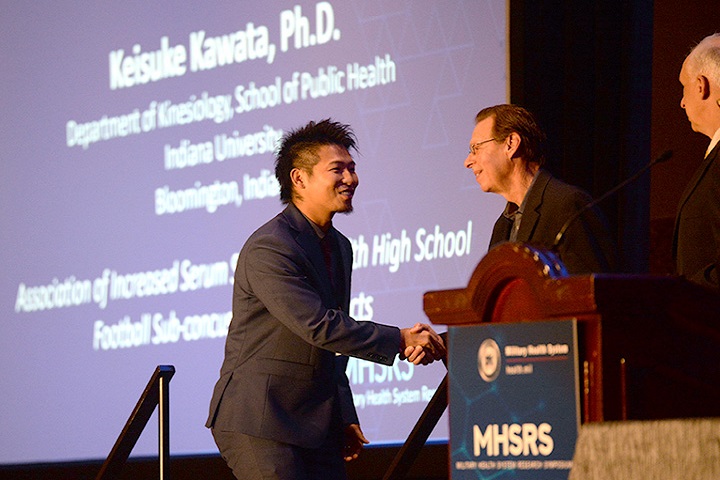
Three take top honors in highly competitive field
MHSRS 2018 Dr. Yvonne Maddox
Video
8/23/2018

MHSRS attendees were asked about their impressions and thoughts on the symposium.
MHSRS 2018 Tim Clarke
Video
8/23/2018

MHSRS attendees were asked about their impressions and thoughts on the symposium.
Beyond the Golden Hour to the Platinum Ten Minutes
Article
8/23/2018
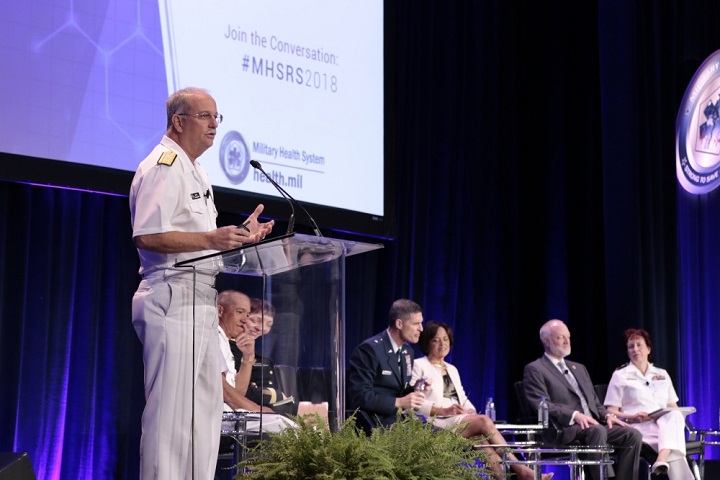
The next fight is going to be very different from past conflicts
MHSRS session focuses on war-sparked innovation
Article
8/22/2018
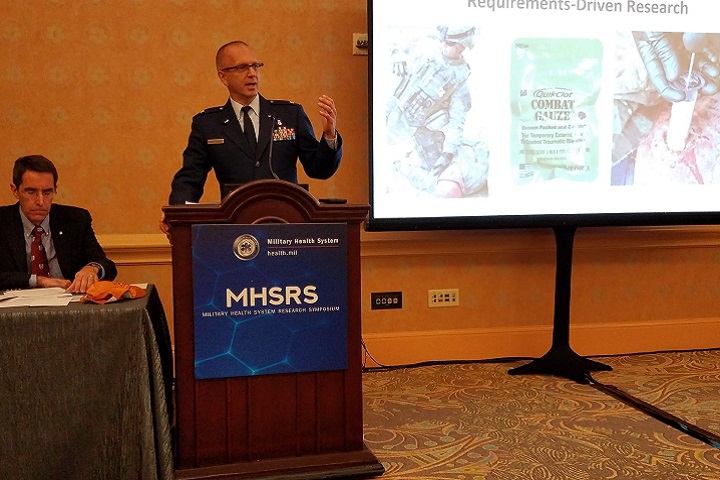
Pace called an extraordinary story of U.S. medicine
MHSRS 2018 Kyle Brandenberger
Video
8/22/2018

MHSRS attendees were asked about their impressions and thoughts on the symposium.
MHSRS 2018 MAJ Steven Adamson
Video
8/22/2018

MHSRS attendees were asked about their impressions and thoughts on the symposium.
Awards honor distinguished service, individual and team research
Article
8/21/2018
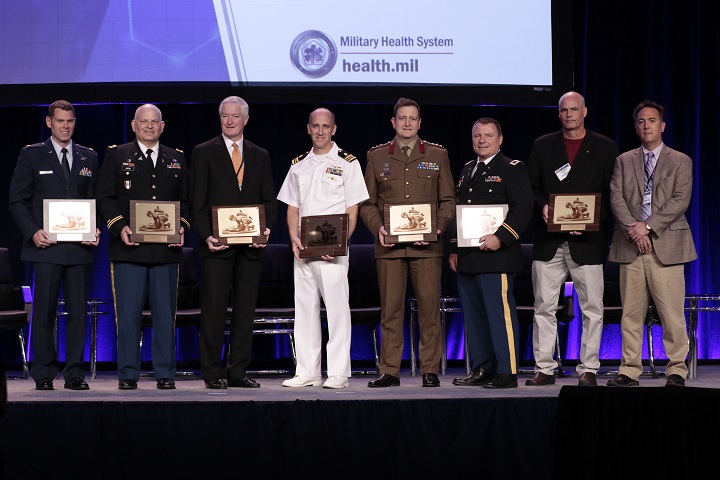
Three people, four teams recognized at symposium
MHSRS 2018 Dr. Rauch
Video
8/21/2018

MHSRS attendees were asked about their impressions and thoughts on the symposium.
MHSRS 2018 CPL Michelle Ott
Video
8/21/2018

MHSRS attendees were asked about their impressions and thoughts on the symposium.
Premier scientific symposium showcases medical research and development
Article
8/20/2018
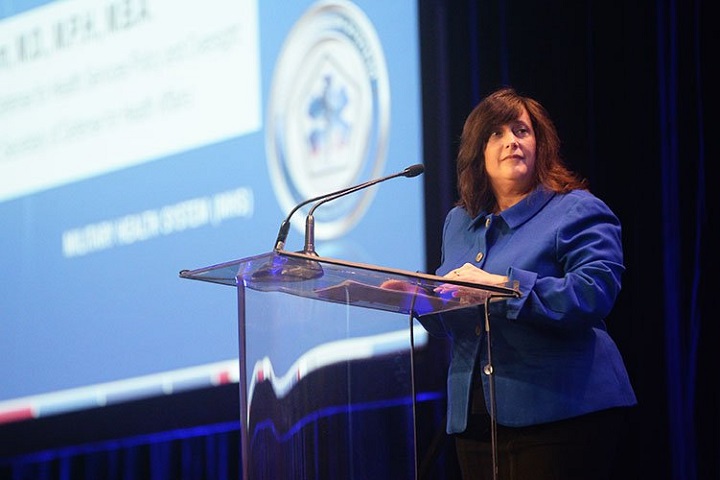
Researchers will present findings at Military Health System Research Symposium
Article
8/15/2018
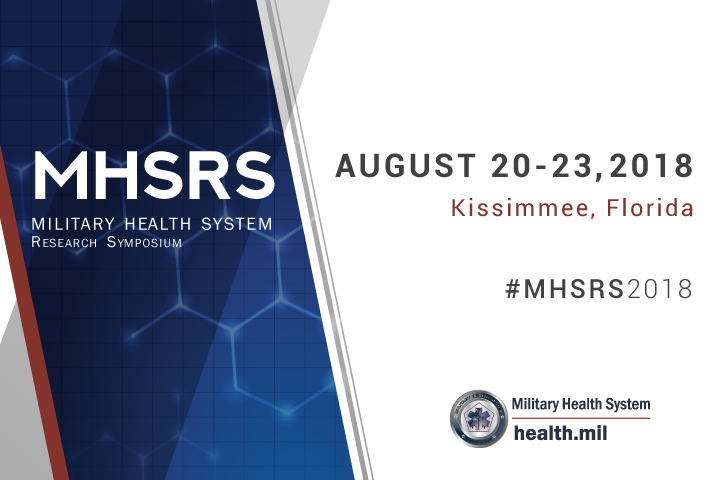
As the DoD’s premier scientific meeting, MHSRS helps to facilitate the exchange of information between almost 3,000 attendees





















.png)









No hay comentarios:
Publicar un comentario